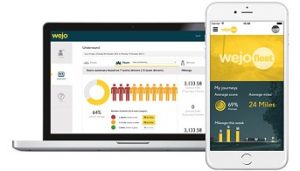Wejo backed by General Motors Co ,will go public through a reverse merger with blank-check company Virtuoso Acquisition Corp in a deal that values the British company at $800 million including debt, the companies said on Friday.
The deal is expected to raise $330 million in proceeds for Wejo according to information from the company. That includes $230 million from Special-Purpose Acquisition Company (SPAC) Virtuoso and another $100 million referred to as Private Investment in Public Equity (PIPE).

Richard Barlow Wejo CEO said institutional investors make up most of the PIPE, but declined to identify the firms involved. An additional $25 million could be raised within the next month as talks continue with other potential investors, he said.
The $800 million enterprise value for Wejo implies an estimated $1.1 billion pro forma equity value.
Must Read: Twitter Acquires Scroll, the Venture- Backed News Startup From Tony Haile
“The future is data and this is a company that’s sitting there right in the middle of this incredible wave of data that’s coming,” Virtuoso CEO Jeffrey Warshaw said in an interview. “All this opportunity to monetize it, it’s almost limitless.”
The merger with Virtuoso is expected to close in the second half of the year, the companies said. The new company will trade under the symbol “WEJO” but the stock exchange has not been determined. Reuters had previously said Wejo and Virtuoso were in talks.
The valuation is down from the more than $2 billion that sources told Reuters in March Wejo had hoped to achieve.
Must Read: Kenyan Fintech Startup Tanda Secures Seed Funding
The SPAC market has cooled off recently amid fears of frothy valuations and last month the SEC suggested warrants issued by SPACs should be accounted for as liabilities instead of equity instruments.
Wejo organizes data from almost 11 million vehicles connected to the Internet through embedded modems for such clients as GM, Hyundai Motor Co and Daimler.
Must Read: Germany Gives Go Ahead For Self-driving Vehicles to Ply Public Roads
Automakers can use the data generated from that connection to develop apps and services for fleets, smart cities and individual consumers, including advertising, fleet management, insurance, remote diagnostics, roadside assistance, parking availability and traffic information.



